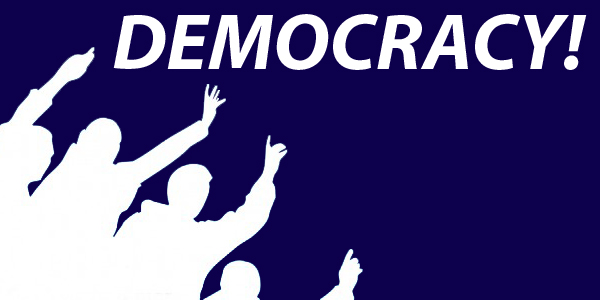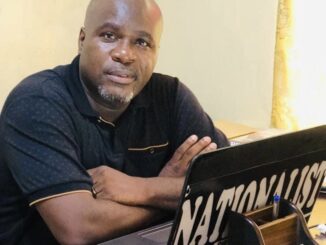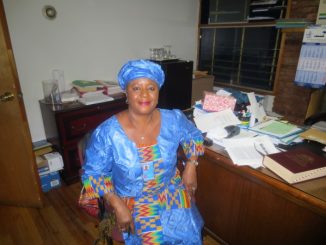
By Moses Massa, June 22, 2015
Introduction: Politics is one of many activities, which encourages conflict, competition, cooperation and change as obvious occurrences in human societies. It is also the vista that opens up the pathways to unbridle power and insatiable wealth. Like some mechanized design, politics have key units assembled piecemeal to finish a process. One such piece in political democracies is debates (discourse). But too often this political discourse clank and clash like the brilliant madness of a raffle machine. Not least Sierra Leone, where presently, the debates in some key political parties as to their candidates for the 2018 general elections has started all too soon, becoming a seeming stalemate and generating much hate. The situation is not surprising from 1996 when multi party democracy was reintroduced and not helped by the stultifying party politics, where regardless the candidates put forward by the various political parties, citizens have no choice but to vote. This has had far reaching implications on our national development. And the focus of this op-ed is to examine the system of nominating candidates to contest national electable offices, understand the challenges and proffer a better alternative so as to make our country better
Diagnosing the problem? Let me hasten to say that I am under no illusion that this suggestion will gain appreciation by the political elites, rather it is my conviction as an option that it will provide some solutions to the perennial negative assumptions and allay the well founded apprehensions of our failing political processes. This is so because after every electoral cycle we are disturbed and frustrated with our previous choice of party executives or candidates, who for uncountable reasons did not deliver as expected. Undoubtedly, political parties make it worse by preparing for a new ceremony to choose others in a dumb practice of awarding symbols, electrified by a razzmatazz in national party conventions where party executives and candidates are selected than really elected. Since 1996 it is a disheartening fact that the manner of our political party processes has not been an enlightening spectacle than a platform of acerbic prose, rant, and bickering. This is reflection of the simple fact that we have always got it wrong at our democracy’s entry point- Awarding of Symbols and Nomination of Presidential Candidates, which in all fairness it is not only wrong but the reason why we are grappling with good governance and economic development.
Some of the current problems and what we should do? The issue of trust is important in good governance but this is lacking between the voters and their elected representatives. For most times, the highest bidders are awarded the symbols to contest; some delegates are bribed or made to swear oaths to secure their promise in the award of candidates’ symbols. Many MPs do not interface or engage with their constituencies after elections- visible before and during elections. Worse still, when bills are introduced in parliament, MPs do not visit nor consult with their constituencies to get their input on the strength, weakness and limitations of the intended law; thus laws are enacted without the knowledge and consent of the people. The problem even goes deeper to endangering the security and safety of rival candidates and supporters. In Freetown for instance, we have some party head offices where rival aspirants and supporters are not allowed to visit; they dare not as they will be hounded like the dog does at the sight of a rabbit. Some have been removed from their parties and others are challenging their expulsions in the Supreme Court. It is high time we reflected over the entire process to see which values are there to be learnt and adopted by all political parties in electing executives and electoral nominees that would meet and serve our basic security needs and interests.
Not just import but adopt best practices: Our current political practices are imperfect copies of the American and British systems of government. To highlight a few, our 1991 Constitution makes for a president; an unsatisfactory practice of the American Constitution and our national party conventions is a mélange of the US and UK’ political practices. What we need to learn from the American experience? In America, before the presidential elections in November of every four years, the voters are involved in early state elections called primaries. These electoral primaries are conducted across the fifty two states, where qualified voters and citizens, registered as party members and independent voters, elect their potential party nominees for the Presidency, Congress and Senate elections and other key executive positions.
These primaries are very crucial as an early but stern test to elect the best and popular candidates within any political party as it seeks to convince the public to vote their candidates into office. After every primary, the winner is allotted a certain number of delegates based on the state laws. For some like the Republican Party, it is simple majority- the winner of any state primary takes all the potential available delegates, while with the Democratic Party, it is proportional representation- no winner takes all but delegates are allotted to candidates based on vote counts. At the completion of all state primaries, a date is set for the national party convention, where all the 52 states appointed delegates officially recognize the successful persons as nominees for the presidential, congress and senate elections to the nation and individual states.
Why adopting the primaries would change the current practice of granting party symbols? In Sierra Leone, all political parties understandably have their own constitution, stating how symbols are awarded to candidates. Some like the APC say selection, others like the SLPP talk about consensus, which are not democratic and fair. The processes are so intertwined, leading to the same end; granting the dangerous privilege of delegates who are allowed to select– if you believe elect– candidates for the local council, parliament and the presidency. Such a process is an affront to common sense because many delegates do not reflect and represent the popular will of their ward, constituency and national membership. The bases for laying the foundation for good governance are not continuance with the rotten past and present than change this confusing and barren process. For us to get the initial process of democracy right and elect candidates with the required ethos to serve their constituencies and nation, we have 14 electoral districts, where each district should be allowed to choose and vote their party executive and electoral nominees freely, fairly and directly. If we are serious we could do these six months before the general elections.
Forms the primaries should take if we are ready for it? The primaries should be done at two levels-district and national. Level One: For MPs, Mayors, Councillors and Party Executives, the primaries should be at the respective district and ward of representation. Level Two: For the Presidential, the primaries should be conducted in all the 14 electoral districts. After these 14 primaries, the candidates with the highest votes, who during and after the process, not found wanting in any criminal matter should be declared as the party’s nominee for the presidential elections. This is an important caveat to keep all looped within the laws of the land.
How? Thus, to effectively do this, each party should have its own calendar allocated per electoral district for the primaries. Political aspirants should then visit, inform, campaign and educate the people in the various district constituencies about their background, values and policies to persuade potential eligible voters. To be an eligible voter, a person should be a registered member of the parties or resident in the given location in order to vote the contestants as nominees for district executives, MPs, Councilors and the Presidency. These elections should be observed by NEC to ensuring transparency, fairness and legitimacy. To make the process a bit interesting and transparent, the number of delegates’ count required for clinching the nomination should be stated so as to prevent the situation where early successes for a given candidate should not be accepted as having secured nomination, but going the extra distance until that is achieved. For the national party executives and presidential primaries, there will be many contenders who rightly or wrongly believe they are the people’s choice, but once the process gets underway in any district and votes tallied, those with little or no votes would advice themselves to drop out.
What next after the primaries? After the primaries for MPs, Mayors, Councilors and Party Executives in each district the votes should be tallied and winners declared. In order to make the process inclusive of having delegates, then such seats should be allocated equally and fairly to districts on size, population and gender. Once that is achieved, all districts appointed delegates basically and formally recognize all the other candidates and presidential nominee and not involve in any further voting so as to prevent confusion and legal bottlenecks. In the end, each party will be electing parliamentary and presidential nominees with wider cross cutting appeal than a narrow one. It may also minimize or eradicate the ethnic dimension associated with our political process.
Benefits of conducting the primaries: To start with, it would lead to real soul searching to all would-be aspirants whether they have the appeal, guts, financial muscle and savvy to organize and involve in elections of this kind. It would prevent the possibility where the person with immense wealth gets elected always at the expense of the people’s real interests. It would leave no room that led to the situation in Makeni 2006 at the SLPP delegate conference, where former president Tejan Kabbah, was allegedly said to have sat in front of the ballot boxes to intimidate delegates to vote for former vice president, Solomon Berewa. This, if true, is against the principle of democracy (secret ballot) and perhaps the cause that led to the reactionary step by Charles Margai in 2007 to form the PMD as well as the kind of bickering and legal conundrum plaguing both the APC and SLPP over their current leadership question.
It would also improve the local economy as these aspirants and their campaign team flood each district with much needed cash to feed and house some of their supporters, as well as provide the necessary logistics to ensure their success. It would help our democracy regain its true value as all aspirants and eventual winners would have traveled the country, met the people and known the unique needs of each district. More so, the electorate would be properly informed and educated about the issues of greater concern to them. It will send a simple and undeniable conclusion to all defeated aspirants that they are not the people’s choice, because as voters they would have had the capacity of being well informed and tenacity to know why and who they should vote into office, thus, extinguish the flames of political mediocrity and self serving individuals. It would ensure that our elected officials are answerable to the voters and not the respective political parties, because they would be elected based on individual efforts and charisma. It would add value and independence to their work. Come to think of it that if we had had such a process in place, President Koroma would have not appointed his now sacked Vice President, Hon. Alhaji Sam Sumana as his running mate in either the 2007 or 2012 presidential elections as his political profit and loss capital would have been easier to calculate, nor would have sacked him as he did, because the outcome would have been huge and unpredictable.
Way Forward: Many of us want the best for our country, which is not to say that the present system of awarding symbols and nomination have not taken us anywhere yet or help in electing the right leaders to move our country forward. Change is possible. Often the right ideas for transformative change are like orphans or sometimes rejected by naysayers. Let us move from the old and embrace this new democratic process where the party supporters or local residents directly vote to elect their nominees, and go to the party conventions to congratulate and formally declare the winners of the much prized tickets and mend the walls of relationships broken during the primary elections. ARE WE READY?




